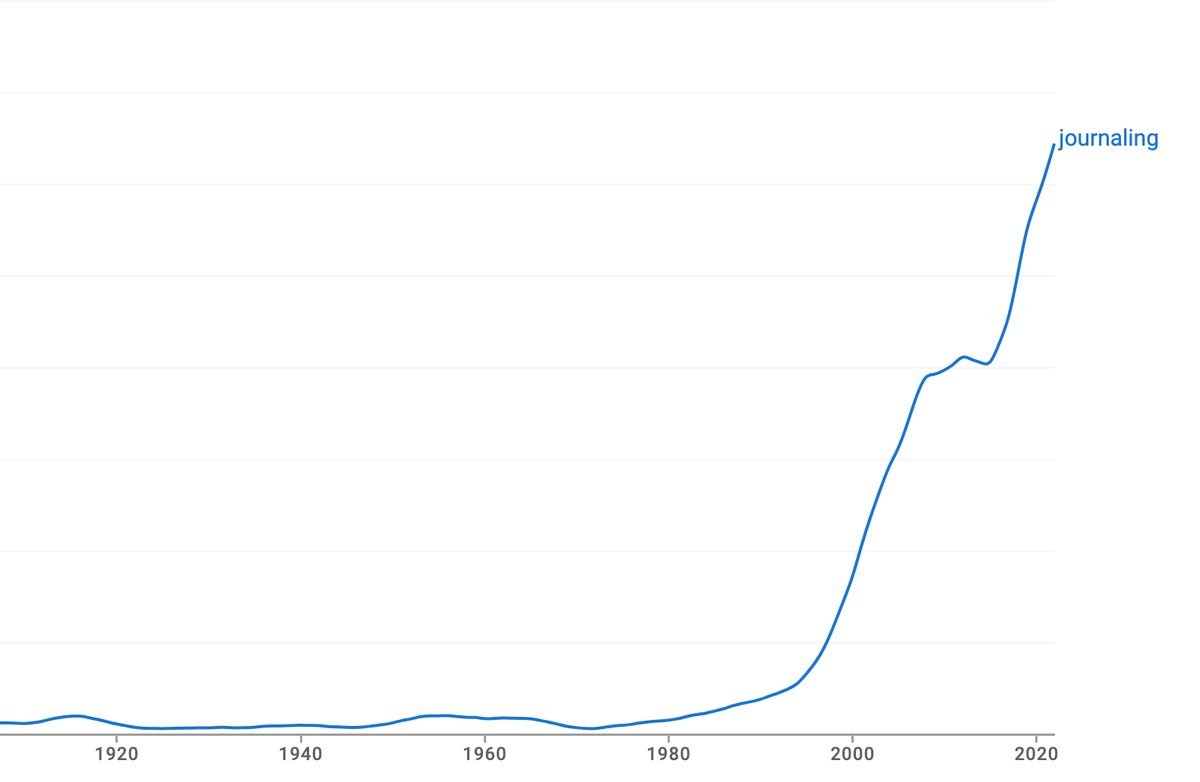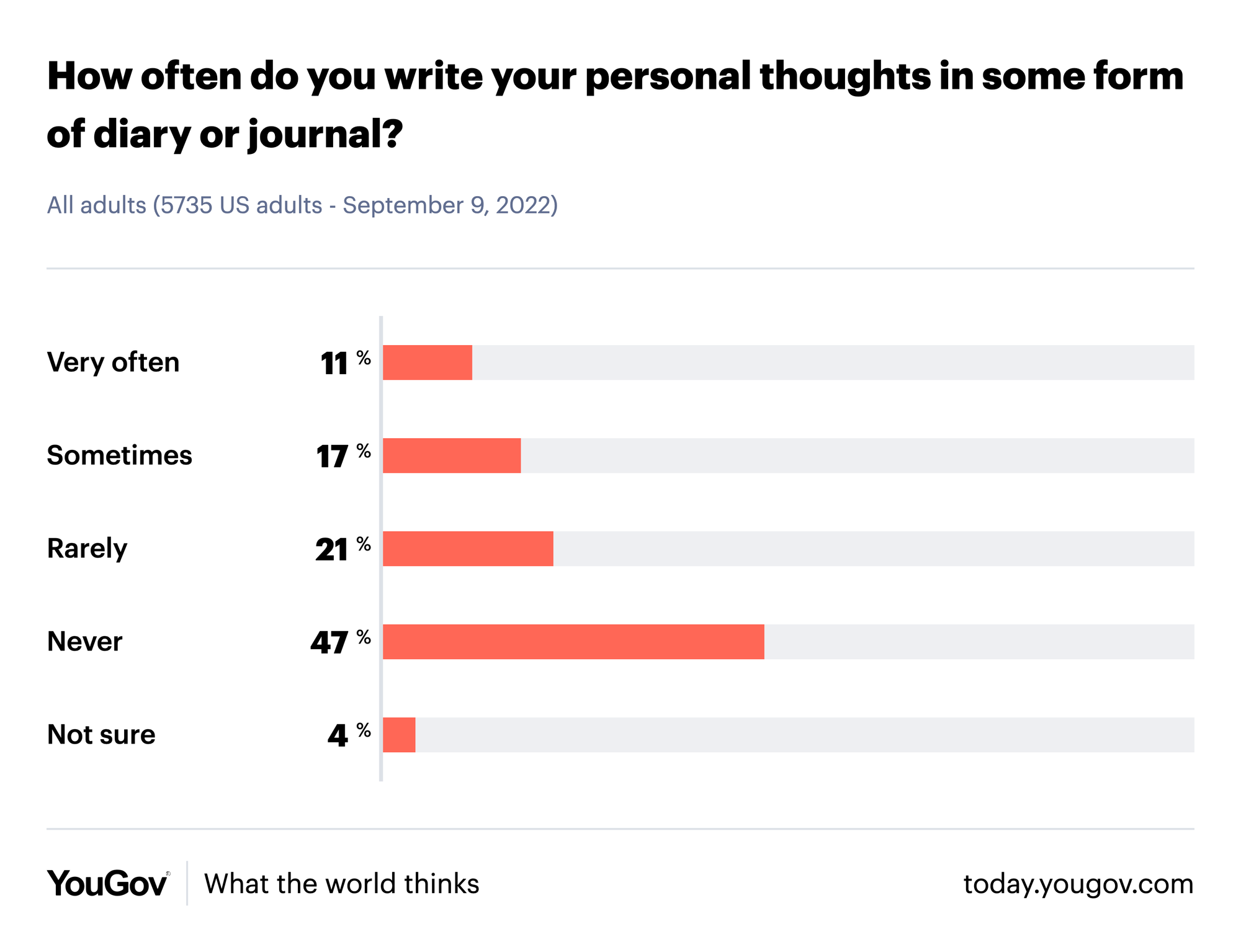Journaling is at its most popular

Journaling is timeless.
Nearly as long as we've had the written language, we've had journaling. Even before humans had developed writing, their depictions of scenes carved into stone and painted on cave walls could absolutely be considered journaling.
At the same time, it's starting to feel like a lost art.
More people would rather scroll through TikTok or argue on X than sit down with a notebook for a few minutes each day.
I'm sure that in the not-too-distant future, there'll be gadgets that we wear that watch and listen to everything we do and journal for us - which completely defeats the purpose of course.
In any case, it sure feels like journaling is something our grandparents cared about far more than our peers do today.
But is it true?
I decided to look at the data and find out.
The Data
It wasn't going to be easy to get the data I needed. Unfortunately, there's no annual survey of the world's population asking if they keep a journal. Still, there are a few surrogate data points that might be helpful.
Google Books
Google has a brilliant (free) tool called Ngram that lets you explore the frequency of words as they appear by year in the more than 40 million books that Google has indexed on Google Books.
This means you can effectively track the rate of linguistic change - how often certain words are referenced.
An intuitive example is 'coronavirus'. Yes, the term existed before the 2020 COVID-19 pandemic - but it entered our common lexicon with some enthusiasm in 2020.
Here's what that looks like:

While not a perfect measure, it represents how often a topic is talked about in the written word.
So naturally, I looked up some journaling and it's British spelling counterpart journalling.


Interesting, right?
While not a slam dunk, this certainly supports the idea that - if anything - more people are writing about journaling.
But wait - what about changes in language? Diary is often used interchangeably with journal - what if more people are just using journal instead of diary?
Fair point.
Here's diary:

While it's not at its highest frequency ever, it's definitely on an upward trend from the early 1900s.
Google Trends
To look at more recent data, we can turn to another source from Google - Google Trends. This tool shows the frequency of web searches for terms over time.
Here's what it showed:

Honestly, pretty similar data. Notice the dip in the 2010s, similar to the Google Books data. It shows an overall increasing interest in the topic since 2010.
Most encouraging though? Take a look at the trend for 'journal app':

More people than ever are searching for journal apps!
While smartphones and the internet may have collectively reduced the average attention span, they've also opened up a whole new kind of journaling, reaching more people than ever before.
YouGov Survey
Another interesting data point is a survey from YouGov in 2022.
It found that nearly 50% of 5ooo+ adults in the US write in a diary or journal at least rarely, and over 25% do so sometimes or often.

While this is just the US and only a snapshot in time, it's pretty impressive.
What It All Means
While there's no way to know for certain how journaling as a habit has been changing, the data we do have says it's on the rise with no sign of slowing.
In fact, there are now more ways than ever to journal - and it seems journaling apps in particular are becoming more popular than ever.
They're opening the door to new ways to reflect, such as an app that literally calls you every day to listen to your entry.
And TikTok? Well, it turns out there are plenty of TikToks about journaling.
So I guess in this one case, I'll encourage you to get out there and be a statistic - start journaling!
-- N.L.




